|
The Thursday Thesis - 1/8/2019
I once heard it said that “A fool sees only the differences, a Wise Man sees that things are all same”. I can’t remember where I heard it or from whom it came – but I remember thinking “Wow!” at the time, and thought about how true it was of music. You see, way back (when God was a boy) I was taught that the music of Bach was different to that of Beethoven, which was totally different to that of Copland, Kraftwerk, Eno and Lemmy. The same teachers informed me – and the rest of the class of teenage, spotty hormone-hostages - that Rock and Roll wasn’t “proper” music at all, and that The Sex Pistols were more or less scum, because the noise they made was so vulgar and they were mere musical simpletons - degenerates who couldn’t read music. A whole load of crap, as I later understood. The Academic Fool pointed to the differences they perceived between music from different ages, hanging their own labels on other people’s works – without even a by-your-leave from the composers and performers whose efforts they postured upon. As fools and children do, I went along with it – soon nailing my colours to the mast by becoming a “Rocker”, complete with denim jacket emblazoned by band names (the more obscure, the better), my hair flowing in luxurious ringlets, and the biggest “Fuck-off Flares” you’ve ever seen. The Rockers fought The Mods, who scrapped with The Skins, who bullied the Hippies... Oddly, everybody picked on the Funkateers, because everybody (except the Funksters) knew that Funk was for tossers. Happy Days! Over time I began to see that every genre of music contains elements of other genres: every New Wave recycles the ideas, chord sequences, melodies and rhythms of all the music that was ever made and played before the New Wave rose up, repackaging and remarketing the simple and familiar to appear like the new and innovative. It happens all the time: we spot the difference, not the sameness. It’s dangerous, sinister and divisive, as well as foolish. The same mentality that somehow got kids fighting over musical styles went mainstream and bullied its way to centre-stage in public life. Today we have Fools who promote equality for all by pointing out the differences between us. It’s moronic to think that this can do anything but undermine recognition of our sameness. Regardless of sex, skin colour, belief system and point of origin on the planet, we are all members of a very big Tribe: we are all fundamentally the same. And so, as The Fools who pretend to Wisdom label us by race, religion, sexuality and anything else they can dream up, they pigeonhole us into their stereotypical categories and sub-categories, often causing us to overlook the most fundamental of all truths: we are human. If we are daft enough to adopt their labels and definitions for ourselves, how can we not set ourselves in unconscious opposition to all that which we begin to perceive as “other”? If I am foolish enough to accept the label of “White, Anti-Theist, European Male” then do I not automatically set myself apart from “Black, Christian, African Woman” or “Brown, Moslem, Asian Male” and all other people who are labelled as different from me, based upon their skin colour, sex and origin? If you or I were to be so foolish, how could we see them as anything “other” than us, or they as “other” than them? So, in this way, those Fools who scream and stamp their feet for Equality for race X, decry criticism of religion Y, and demand special Rights for their Flavour-of the-Month special interest group – oh, how they do make fools of us all, because to grant equality to one or other group creates and entrenches division. We are all born equal, and we are all the same in the eyes of a Wise Man. © Neil Cowmeadow 2019 Please Like and Share The Thursday Thesis with your friends, family, and your chosen deity. I’d love to hear your comments, along with any ideas you’d care to hurl at me. Info@NeilCowmeadow.com The Thursday Thesis - 25/7/2019
“Dude, you have to leave – you have to leave right now and go and do something that doesn’t make you feel like this, ok?” I told him. “...But what if I can’t get another job? And I only have 12 years to go before I can retire...” he said, in between the Monday morning sobs that announced another week in the job we both hated. At the time I was puzzled: why do so many of us do jobs we hate? When a Gallup Survey suggests that only 13% of the global workforce enjoy their jobs, something funny is going on. Why do so many people stay on in jobs that they don’t like? Or stick around in bad relationships? Or repeat behaviours which make us feel ill – and bad about ourselves? The answer to those questions – and many more – is the same thing that tends to keep us alive and safe; it’s a basic part of being human. It turns out that we humans have an inborn tendency to keep doing what we are already doing. We don’t like to rock the boat, and we have a need for stability Humans are very resistant to change, and strongly attached to the familiar: that’s a strong component in how businesses set about branding and marketing to us, and why existing customers are much easier to sell to than new customers. And that’s why it’s so hard to leave a job, relationship or change a habit which does not serve us: we are programmed not to change. Change is hard because humans like things to stay the same all the time – even if that means continuing pain and unhappiness: it’s called homeostasis. In your body’s self-regulating world, change is bad, because Change is risky – especially in evolutionary terms. If your current behaviour is keeping you safe and fed, it’s good behaviour and you will fight to continue that behaviour: seems like a good idea, doesn’t it? The problem here is that your resistance to change is a meta-pattern: it exists across all contexts and all of your behaviour – be it good or bad. So you’ll hang on to your damaging behaviours with the same tenacity you cling to your helpful behaviours, because change is risky – regardless of whether it is change for the better or for the worse. Consequently, it’s commonplace to find people who stay in jobs they hate, relationships that hurt, and pursue unhealthy activities – even when they know that these things are damaging and a waste of their time, effort and resources. I’ve done it, and you probably know someone who has, too you might even know them very, very well... I stayed in that job – even when Monday morning had me cringeing under the duvet until the very last moment. I stayed in a relationship – even though it made me feel worthless. And I continued going to the pub and getting shitfaced, despite the dreadful hangovers that lasted for days and made me feel shabby, helpless and out of control. So it goes. We habitually test behaviours which we’ve already proved don’t work for us, because we perceive making a change to be too risky. But the truth is that NOT making a change is beyond risky: we have proof that not changing doesn’t work, because we’ve tested it and tested it...and it still doesn’t work! We might rate our chances of success in a new or different endeavour at, perhaps 5% - one chance of success in twenty. We might rightly describe it as “risky” – based upon our best guesses. But not making the change is proven to have a 100% chance of failure, based upon our solid experience and knowledge. Let me ask you something: if you were in a car skidding out of control at 80 mph toward a brick wall, would you grab the steering wheel and try to make the car turn in any other direction than toward the wall, even if your chances of avoiding the brick wall were only 5%? The odds are the same, but you’re going to grab that wheel, aren’t you? Even though it’s “risky”. © Neil Cowmeadow 2019 Please Like and Share The Thursday Thesis with your friends, family, and your chosen deity. I’d love to hear your comments, along with any ideas you’d care to hurl at me. Info@NeilCowmeadow.com The Thursday Thesis - 18/7/2019 Steve Jobs of Apple told the graduating students of Stanford University “...you can’t connect the dots looking forward; you can only connect them looking backward. So you have to trust that the dots will somehow connect in your future.” To put it another way, when you are further down the line, you can look back and see the turning points and decisions that got you to where you are: you can see how everything connects up along the way and – from the future’s perspective – make it seem inevitable that things turned out the way they have. For most of us, “Looking forward to the future” is a pretty good description of how we think, because when we imagine the future we usually create images and visions of the future in front of us, and usually dead-centre. Maybe it’s because humans’ normal direction of movement is forward that we hold the future in front of us, as though we could step into it in the same way we walk to the corner shop. But the future is more like a fall, backwards into the unknowable, looking at the “dots” which preceded the fall. This is why imagining your future is vital to any kind of planning and personal growth; by visualising our future we can “step in to” our idealised, imagined future and observe our course from that position. We can visualise the steps of the journey which culminated in that imagined future, notice the turning points and critical moments, the decisions and actions which shaped the pathway to where we imagine we want to go - our imagined future. You can’t do it from where you are, but you can fast-forward into the future and look back, joining the dots and admiring how perfectly the route you took got you to where you wanted to be. What’s your future going to look like - and when you look back from it, which dots will you connect up? © Neil Cowmeadow 2019 Please Like and Share The Thursday Thesis with your friends, family, and your chosen deity. I’d love to hear your comments, along with any ideas you’d care to hurl at me. Info@NeilCowmeadow.com The Thursday Thesis - 11/7/2019
“...what would life be like if everything in it were perfect?” asked the weasel-faced bloke in the shiny trousers. That was the moment he lost his credibility, and my mind wandered off in search of something less tedious amongst the stands and demonstrations at The Best You – an annual self-help event held in London. You see, I don’t believe in the perfectible self or a perfectible life: there are no such things. Nobody is perfect, and nobody I have ever met or heard of could possibly claim to have a perfect life. Nobody. And this is why I think self-help gurus are off the mark when they peddle the idea of having a perfect life and meeting the perfect person, having the perfect kids and the perfect whatever else you might hanker after. Is self-help a cult which sells the illusions of perfection to its devotees? No, because the guidance provided by the self-help movement and the weasel with the blow-dried hair sometimes works and turns lives around. At the same time, however, it hypes its promises and massively oversells the prospects of being better versions of ourselves. What might be better, more honest – less scammy and tainted by the whiff of snake oil? How about setting aside the idea of everything being perfect and facing up to reality instead? Since perfection is a myth, maybe a more honest pitch would suggest becoming an interim, better version of ourselves instead: not The Best version – just better. Not The Ideal Self – just the latest and best version, to date. Just Better is an improvement, and that better you can be a springboard to the next, even better version of yourself, and that next version the springboard to the version which follows it... Russian sports psychologists dismissed the Ideal Self as an uninspiring and unachievable illusion. They urged their elite sportsmen and women to aim – not for a Perfect or Ideal Self – but to become better versions of themselves, over time. The athletes were asked to visualise what they would be like if they were better than they currently were, then to adopt the habits and behaviours of that better version – the “Target Self”. The athletes were put through this process every few months by their coaches and sports psychologists, refining their Target Self from the new perspective of who they were becoming and recalibrating their Target Self upon their newly-acquired habits, behaviours and attributes which were the results of previous iterations of the process. Behaviourally, this is like a ratchet which moves a person through self-change by degrees; relying upon the gradual attrition of obstacles and unhelpful behaviour by time and effort. If The Weasel had asked everybody in the arena “What would a slightly better version of yourself look like in three months’ time look like?” he would have been asking a better, more actionable question than blathering on about your Perfect Life. But he would have sold a lot less of his books, courses, immersive experiences and mastermind products. The tragedy is that becoming a little better every three months is doable for almost everyone - but hardly anyone would listen to a speaker who suggested they should pursue that course of action, would they? The fact is that people are beguiled by the myth of The Perfect Life and The Perfect You because it is so very sexy, and evolving yourself from who you are now - “Version 1.0”, so to speak – into Version 1.1, then to Version 1.3, and so on is deeply unsexy and will require a smidge of effort and self control. Personally, I’ll take my chances with the upgrade of my Target Self Version to 1.1, and when I’ve completed the upgrade to Version 1.2 I can build Version 1.3, then figure out what Version 1.4 should look like. The Target Self is never perfect, it is only the next upgrade and the next level of experiment – the next step along the path which goes on forever; always changing, twisting; surprising and delighting, with ups and downs to make it all more fun. That sounds like a better way to spend our days than being Perfect, doesn’t it? © Neil Cowmeadow 2019 Please Like and Share The Thursday Thesis with your friends, family, and your chosen deity. I’d love to hear your comments, along with any ideas you’d care to hurl at me. Info@NeilCowmeadow.com The Thursday Thesis - 4/7/2019
Unless you - like me - are a geek, chances are that you’ve never heard of Warren Buffet, the American investor, businessman and philanthropist. Now, Warren is an interesting guy – maybe even a genius – content to conquer the world of investing from Omaha, Nebraska rather than a glass tower on Wall Street. In fact, Warren thinks differently about almost everything; “observe the masses, do the contrary” could almost be his mantra. Here are a few key points about “The Sage of Omaha”
Apart from his philosophy of thinking long-term and being frugal, Warren has a pretty cool trick up his sleeve when it comes to managing his time – here’s an overview of the process: First he makes a list of his top 25 goals. From that list he identifies the top 5 goals. His top 5 goals go on his List One: The Vital Few things which will make all the difference. The other 20 goals go onto his List Two: the Avoid-At-All-Costs List. I think that’s brilliantly simple – and I’m whittling away at the unnecessary things in my own life in order to focus on the “Vital Few” things which will be of greatest value to me and the people I love. It’s a very clear system, but it requires discipline and focus to stick to it, because it’s hard to let go of things we love – even when they don’t serve us – and it’s hard to resist the temptation of short-term pleasure in order to achieve a long-term goal. But above all else, Buffett’s system demands we understand what is important to us. So, put the kettle on and brew yourself a nice cup of tea, then sit quietly and mull over the questions: What would be on your Vital Few list? What would you have to disregard in order to have only 5 things on your own Vital Few list? Your answers could change your life. © Neil Cowmeadow 2019 Please Like and Share The Thursday Thesis with your friends, family, and your chosen deity. I’d love to hear your comments, along with any ideas you’d care to hurl at me. Info@NeilCowmeadow.com The Thursday Thesis - 20/6/2019
I have a voice in my head. You have a voice in your head, too. If you think you don’t, whose voice was it that just said “no I haven’t”? We all have voices in our heads – not the schizophrenic’s auditory hallucination kind of voices – but the voices that haunt us and screw us up. They’ve been around for so long that we usually accept them as permanent and just another part of us: they’re part of our identity, even though they are usually just repeating echoes of long-ago, distorted, corrupted and twisted by time. Mine is the schoolteacher who told me that I’d never amount to anything, and the protective parental voices counselling me to not take risks and to find a nice, safe job. They lurk just below the level of my ear, slightly behind my right shoulder – the same place they’ve always been. What’s yours like? Maybe – like me – you’re still hearing the words of someone with authority and upon whom you depended for approval or love, all rolled together into the voice of your Inner Critic And maybe you’ve been listening to them talk crap about you, too - maybe for decades - just like my own inner voices have been talking trash about me and giving me their ten cents’ worth for decades, making me play it safe and doubt myself. Well, they used to do that... You see, a little while back, I got lucky. James, one of my mentors, showed me how to turn my own inner critic (a.k.a. my “Inner Bastard”) into my new Best Friend Forever. As he guided me through the process, he asked “...the voice in your head is always in the same location when it speaks to you, isn’t it?” “Uh-huh...” I agreed. He pressed on “...And it always has the same characteristics of tone, volume, cadence – and it usually says the same old words it has been using since...well since forever, doesn’t it?” I think I nodded. “It’s giving you the same message – like a tired old telephone answering machine that’s played the same worn-out tape for decades...” He said. “Now we’re going to change the tape, but the voice will remain exactly the same: the same position, the same intonation, volume and cadence, but now it’s going to speak different words. It’s like we’re going to change the tape in the machine: use the voice – change the tap... use the voice – change the tape... use the voice – change the tape.” I moved my hands through the actions of removing the imaginary cassette tape from the imaginary machine and inserting a brand-new, shiny imaginary cassette...then pressing “PLAY”... Now my old schoolteacher was telling me “Neil, you’re an oddball – a creative guy, very bright and full of fun, and I am absolutely certain that no matter what obstacles you face, you’ll find at least three possible solutions that are positive for everyone involved, and usually an opportunity that nobody else has spotted, too.” Thank you Mr Roberts! Why didn’t you say that forty bloody years ago? Then my dear old mom and dad chimed in – but what they said to me on the tape is private and sacred. The effect was immediate, and I was close to tears. James had me repeat the tape-changing process and tweak what the voices on the tape said until it was exactly right, then to leave the machine turned on and ready to play the tape for me at any time. This was some pretty weird stuff to take in, but I gotta tell you that it works: it works better than almost any self-talk intervention I’ve ever seen or read-up on. Some self-talk modifiers suggest that we should draw Mickey Mouse ears on the voices and give them helium to make them squeaky voices; others suggest moving the voices further away or moving the mental volume and tone controls. They also work, but not for everyone and not always quickly or permanently; I suspect that this is inconsistent because we have changed the attributes of the voice and it loses its authoritative qualities – that’s actually the whole point of the exercise. But here’s the thing: if you retain the attributes of the voice – instead of changing them - it retains its authority, credibility and power. Now, when the voice speaks to you, it still has all the gravity, power and credibility it has always had, but now it is saying positive things to you. What would you prefer your Inner Critic to say to you? Change the tape, and notice the difference... How cool is that? © Neil Cowmeadow 2019 Please Like and Share The Thursday Thesis with your friends, family, and your chosen deity. I’d love to hear your comments, along with any ideas you’d care to hurl at me. Info@NeilCowmeadow.com Episode 155 - The Wisdom of Baldrick The Thursday Thesis - 13/6/2019 Baldrick: Wait a moment, My Lord! I have a cunning plan that cannot fail! Blackadder “The Witchsmeller Pursuivant” Yep, even Blackadder’s sidekick – the downtrodden yet optimistic Baldrick – had a plan. And Baldrick’s plan was always very cunning – at least to Baldrick. And it’s a funny thing, but growing up in Wolverhampton in the sixties and seventies, nobody mentioned plans for our lives: certainly not at school, and not at home either. At no point did anyone suggest that having a plan for your life would be a good thing, or that aiming high was to be desired and admired. Though, come to think of it, I probably wouldn’t have listened to them if they had: I was always a stroppy little sod. As the seventies ended and the decade tipped over into the eighties the story was still the same: plans for your life were not talked about: they were not what you did. I do distinctly remember being told that if I were foolish or arrogant enough to dare to make a plan, I could expect Fate to thwart and frustrate me at every step. It seemed that Life Plans were for dreamers and delusional oddballs; the know-alls and nutjobs. And there was something comedic about these people with plans, too – as though they were dreaming a little too hard... Now I understand that if we don’t have a plan for how our lives should be, we’ll end up working for someone else who does have a plan for us and whose plans probably won’t be much to our benefit: I just wish I’d found that out forty years ago! You don’t have to look far to see people making plans – invariably the wrong plans. It’s commonplace to spend a very long time planning one’s wedding or annual holiday – but it’s much less common to really plan a life for oneself, based upon what might be a fun way to spend the next seventy or so years. Doesn’t that strike you as odd – or is it just me? If you have a plan, then there’s a chance of things going the way you want them to. Without a plan we are unlikely to end up with what we want. Like a beautiful ship without a map or compass, we can sail and drift for years – sometimes for a lifetime – even though the rudder is working and the sails are full of wind, but without a course to steer by, even the best ships wreck and run aground on unknown shores. In the military it’s often said that “no plan survives contact with the enemy” and it’s true. The armed forces are masters of planning, and the phrase “planned with military precision” has become synonymous with effective and efficient operations. Here’s the thing, though: the army knows that its plans will not survive contact with the enemy, but it still invests time and effort into making plans to ensure that the desired operational outcome is achieved with minimal losses – after all, what kind of army goes off to war with the idea that they’ll maybe go and “...wander around – probably in that country over there - and maybe do some fighting...”? It would be ridiculous for an army to act in that way, and it would be ridiculous for anyone to act in that way, too. For an army many lives may depend upon the operational plan: for us as individuals, we are entirely dependent on our plan, or – more often than not – no plan whatsoever. We march forth into each new day, becoming too focused in the day-to-day business of daily life to pause and look a little further down the road, survey hazards and scout for opportunities, and to make plans for their evasion or exploitation. Lost in the fast-paced busy-ness of everyday life, crisis of the moment and our immediate needs, we forget to plan what happens after today’s crisis has passed. So I think it’s a great idea to take time off, once a year, and get away from work for a day or three. Isolate yourself from anything that could distract you from figuring out how you’d like to spend the next ten, twenty or more years and deciding what your life might be after those years have passed. Write it all down and review your plan – in depth, every month; refer to your plan on Monday morning and notice how things are progressing or not progressing; then identify the short-term activities which will move you closer to your desired outcome. It’s not rocket science, but a plan is usually the thought-foundation upon which everything else is built. You see, making a plan is just like creating a blueprint for your life. There will be changes and amendments, re-thinks and re-drafts along the way, it will never be completely right, and it will never be perfect, because no plan ever is - but even a fairly good plan has a better chance of success than having no plan at all. © Neil Cowmeadow 2019 Please Like and Share The Thursday Thesis with your friends, family, and your chosen deity. I’d love to hear your comments, along with any ideas you’d care to hurl at me. Info@NeilCowmeadow.com The Thursday Thesis - 6/6/2019
"Ah Yes... She was beautiful, and I was blind" A long time ago, I loved as only the young and reckless can love. I can still remember what it was like, even now. But.... And there's always a but, isn't there? I was lucky to connect the dots between a couple of chance remarks made by friends. I’d been deceived. Lied to. I crumpled, moped and blubbered like - well - the most crumpled, moping blubbery thing you can imagine. Eventually an old mate asked me “What’s Good About This?” He reckoned I'd been lucky; that I'd had a near miss and I was lucky to not waste my precious time on her. Lucky - because the truth of the situation bubbled to the surface – the truth always does; it’s a bugger for that. Lucky - because the insistent gut-feeling that had plagued me for months solidified into an undeniable knot of certainty. Lucky - because I’d no longer waste my precious life where I had no value. That’s what was good about it – instead of waiting for the right moment, waiting for something to change, I changed. My hours and days would cease to bleed away, hoping against hope for a miracle. Blinded and deceived, I had lost any sense of my real worth. I wasn't the first – and I won’t be the last – man to be deceived. I still remind myself to pay attention to the gut-feeling that warns and growls out “Danger!” I remind myself that the way someone does one thing is the way they do everything: their values and belief are shown in all that they do. I’ll remind myself that thoughts become actions, actions become habits, habits become personalities, and personalities define the life. And most of the time, a liar will always lie, a thief will always thieve. And an optimist will continue their unstoppable march, undaunted. I am now officially an optimist, and I still march on. That’s what was good about being dumped. The Thursday Thesis – 30/5/2019
Warning: Do not listen to the audio version of this blog if you are driving or operating machinery, as it contains hypnotic language patterns and may induce rapid Trance. Mention to anyone that you’re a hypnotist and you’ll often get funny looks from them. To many people there’s the image of the stage hypnotist and people quacking like ducks as they waddle around him; to others there’s the Svengali-like figure exerting mind control over his victim. But hypnosis – or Trance - is a natural state which we all pass into and emerge from throughout every day of our lives, and Hypnosis has been recorded in human history since the dynastic period in Egypt, around four thousand years ago. So – if everyone does it every day - why do people have strange ideas about trance and struggle to define what hypnosis is all about? Here’s my favourite definition of Trance: the condition of focused attention and the establishment of acceptable selective thinking. One thing that training in hypnosis has taught me is that people are in trance for almost all of the day: their family trance, their work trance, their geezer-down-the-pub trance – behaving differently from one context to another. Any parent who has lost their child for what seems like days on end as the child is absorbed in the latest computer game will have observed this, just as we have all seen people staring intently at their phones, impervious to the world around them. Computer games are designed to create absorption in order to keep the user in the game and create dependence by a carefully constructed pathway strewn with rewards and schemes: they are designed to induce trance in the players and to offer them a more engaging experience than dealing with reality. They’re not zombies, they’re just in trance and are not paying attention to what we call reality – just like I did as a child transforming myself into Spiderman, a Commando, the Wolves’ captain or my flavour-of-the-week favourite pop star. Being aware of trance phenomena has been a huge help when I’m working with my guitar students – particularly the ones who tell me “...I have no musical talent / I can’t play guitar... / I have no sense of rhythm...”which is just about everybody! The problem isn’t that they lack talent or haven’t been blessed with a “Gift”: the problem is that they’re stuck in a trance and don’t know how to get out of it. Over a lifetime they’ve accumulated evidence which supports the “no talent” statement or any other belief they hold about themselves: they have learned to focus their attention on what they cannot yet do and to only think in terms of how hard it would be for them to learn. It’s a circular belief system – a positive feedback loop – which demands that the student pays close attention to what they don’t know how to do (because they haven’t tried it yet), reminding them that they can’t play guitar and reinforces the belief that learning to play will be super-hard...especially for someone like them, who has no talent or natural gift.... They have a robust system of self-reinforcing beliefs and focused attention: that’s a Trance. Here’s the rule: if you’re not aware of it, you can’t affect it. That means we’ll rarely experience a change in ourselves unless we pay attention to how we move through the world; how we think, how we interact with others, how we talk to ourselves and how we view our experiences every day. How may we know to wake if we were not aware we are asleep? The other really cool thing I learned from hypnosis is what hypnotists call “Utilisation” – the process of using everything that happens as being a natural part of the client’s journey into Trance. For example, let’s suppose that - as the client relaxes ever more deeply and becomes more inwardly focused – a car alarm goes off in the street outside. The imperturbable hypnotist will utilise the unwanted noise to reinforce the client’s focus, as though the blaring horn was just another component of the mechanism of Trance, by saying “...and as you notice the sound of a car alarm in the street outside, you’ll simply pay closer and closer attention, now, to the sound of my voice as the car alarm grows quieter and more distant with every breath you take and every beat of your heart... and you notice once again that the sound of my voice takes you deeper and deeper down into the feelings you have that are the most relaxed feelings you’ve ever had, in the way that is most right for you...” This is a very powerful technique for the hypnotist to use, but suppose we just stole that idea and applied it across the everyday business of living? What new meaning could we make from the flat tyre or the laddered stocking, the deal that fell through or the date who stood us up? “...And as I leave the cinema and I attend to my breathing, I can thank my lucky stars that I can quickly eliminate her from my enquiries, which means that I retain a space in my life for someone who will show up for dates and who will be a better partner for me...this is a good thing”. Suppose we figured out how to make everything that happened to us a necessary precursor to our success or achievement of our worthy goal? Wouldn’t that be a Trance worth going into? © Neil Cowmeadow 2019 Please Like and Share The Thursday Thesis with your friends, family, and your invisible friend. I’d love to hear your comments, along with any ideas you’d care to hurl at me. Info@NeilCowmeadow.com Episode 152 - Making Movies
The Thursday Thesis – 23/5/2019 Remember the last time you went to the cinema? If the film maker did their job properly you were probably unaware of the exact moment when the real world fell away and you began to completely inhabit the world of the film. That’s because a good movie is an excellent induction into trance – the removal of critical faculty and the establishment of selective thinking. In a film-induced trance we can change rapidly, taking on the attributes of characters on screen. Ever watch an action movie and find yourself just a little more “alpha” then normal, swaggering just a tiny-bit more than usual? Or that rom-com you got dragged into by your better half: how did you think, feel and act when that movie ended? All day, every day, we have our very own mental movies running in the multiplexes of our minds. And what picture palaces our minds are! These are no common-or-garden movie theatres – our minds are 24/7 total immersion experience providers. Our sound systems are beyond Dolby THX, Surround Sound 5.1, exceeding even the best sound systems on the planet; visuals are projected all around us, 360 degrees in all directions, beyond 3D, HD, Imax, and 4K. Yet it is common for people to show only B-movies in their mental multiplex, replaying the memories of something they wish they could forget, or playing the future film of what they don’t want to happen, over and over again. Pain and Worry, now showing at a cinema near you. Repeatedly looping that tired old memory until you can remember every word, every nuance of movement, isn’t going to help you very much. Likewise, re-running the dystopian future fiction of worry is a powerful strategy for rehearsing disaster as we learn how to move, what to say and how to feel when everything goes terribly wrong. Now suppose you recognise that it’s your mental multiplex: you not only decide what movies play there, but you also create those movies – how would that be? Think about it – from the germ of an idea to the final cut, everything is under your control. Ask yourself what would you like your movie to be about? Now take a little time – just a few minutes – every day to create that movie. Be the writer and director, the musical director, the wardrobe person. If you have your goals written down, these can become the plot-points in the screenplay: a friend of mine actually storyboards her mental movies using 5”x3” index cards on a giant pinboard: she’s very successful and happy, giving most of the credit to her storyboard. “I just step into character and the movie starts...” she says “...all I do is act out what we’ve rehearsed.” “We?” I asked. It turns out that she lets Meryl Streep stand-in for her during rehearsals, and when Meryl’s got it nailed my friend takes over. So you should let an actor you admire take your place as the main character for the moment, because you don’t want just anybody messing-up the rehearsals do you? Hire the best actor you can think of to act your part: notice how they move, how they speak, and how much better than you they are when they’re in character. Of course, they’re a real pro and they never fluff their lines, fall over, stammer or corpse. Best of all, they’ll sometimes improvise something unexpected that’s even better than what you wrote. Keep seeing exactly what you want to be on screen from the director’s point of view, refining and editing, tweaking and improving it as you watch the playback at each test screening. Notice how the central character does things a little better with each take of the movie? When their performance is perfect, just drift into them and look out into the movie through their eyes as you pull on their hands just like a pair of gloves, fill-up their feet like you were putting on a pair of socks...feel how they feel as the movie unfolds and they perform brilliantly, in exactly the right way you want them to as they successfully take care of business, letting the boundary between them and you dissolve as you take on each of the attributes, characteristics and behaviours you need to allow the movie to continue, always free to make adjustments and improvements along the way, always sure of a happy ending. Best of all, there’s a sequel to your mental movie: it’s the story of what happened after the end of the first movie... Over time, it becomes an extended franchise and a blueprint for your life. Mental rehearsal is a proven strategy for sportsmen and women, and this is how elite athletes, politicians, performers and businesspeople practice when they are not “doing it” for real: they see themselves performing at the highest levels, flawlessly, over and over again; never falling or stumbling, just smooth, perfect performance of their script, movement, event, presentation or pitch. You own a great multiplex – a 24/7 Big Screen, Dolby Surround Sound, Multidimensional Dream Theatre... Why waste a venue like that by showing rubbish films? © Neil Cowmeadow 2019 Please Like and Share The Thursday Thesis with your friends, family, and your invisible friend. I’d love to hear your comments, along with any ideas you’d care to hurl at me. Info@NeilCowmeadow.com Episode 151 - The Right Room
The Thursday Thesis – 16/5/2019 One of my mentors once told me "...always aim to be the dumbest and poorest person in the room." Roger that! A few days later, at a property investment conference some dear friends had taken me to, I was doing exactly what my mentor had told me to. Looking around the room I could see at a few dozen millionaire entrepreneurs and property investors, five best-selling authors, and scores of people already on the road to financial independence and their own personal version of success. And there's me, dragging around a ton of negative baggage from a difficult childhood in the rough end of town: I knew - and I suspected everyone else in that room knew - that I was by far the dumbest and poorest person in the room. So, I was certain that this was the right room for me. I stayed put, listened hard and took good notes... And last week I knew, beyond the faintest shadow of doubt, I was in the wrong room. Within a few minutes I began to suspect I was in the wrong room and after ten minutes I was getting itchy to leave. Finally, after listening to the presenters waffle on for 45 minutes they began to fumble embarrassingly with their equipment. I picked up my notebook and walked out. Why do we stay too long in the wrong rooms? Part of us wants things to get better; we want to be polite and not “rudely” vote with our feet, and it is human nature to want things to stay the same. Everybody moves into and out of a variety of “rooms” every day – work, meetings, shops, bars, restaurants, sports halls, and so on. Because humans are social chameleons, we subtly begin to adopt the mannerisms, language and behaviours of the other people in the room: we become like the people we associate with, don’t we? Doesn’t it make sense to hang around with people who are better than us in the aspects of our lives we’d like to improve? If you want to become expert at something (I will naturally suggest that this might be playing the guitar) get in a room with an expert teacher who can break the learning process down for you and reduce the amount of time it will take you to get where you want to go. Simple. Suppose you wanted to write a book - how cool would it be to spend time around successful authors, talking about the craft of writing? Imagine them describing their processes for generating characters, bolting plot elements together, making characters speak with an individual voice, and discovering your authorial voice... And that’s my point: we all drift in and out of different “rooms” throughout our day – usually without giving it a single thought – osmotically absorbing the norms and behaviours of the other people in each room. So how useful might it be to weigh-up if we are in the right room as we move through our days? © Neil Cowmeadow 2019 Please Like and Share The Thursday Thesis with your friends, family, and your invisible friend. I’d love to hear your comments, along with any ideas you’d care to hurl at me. Info@NeilCowmeadow.com Episode 150 - How To Win...
The Thursday Thesis – 9/5/2019 The Formula One expert told me “...Winning is an either/or sort of thing – one is either the winner, or one is not. The difference between being first and second is infinitely more than one place in the finishers’ list: it’s all the difference in the World...” "..and if we can make 1/100th of a second every lap, and then get another 1/100th faster in the next race, we'll win a lot of races - period" He made it sound so easy - and I believed him. As a senior aerodynamicist at Lotus' racing division, he knew a thing or two about going fast in motor racing. He also knew a lot about going fast on bicycles - one of my life's passions - having worked with Chris Boardman on the Lotus bike that helped Chris win Olympic gold and break World Records. He said that - at its core - racing is a simple matter: you just have to go faster than the other bloke. Simple. If everything else is equal, you only have to go faster for a few seconds, or a few meters to make the difference between being the Winner and being the fastest loser. He described a slight advantage or improvement in performance as a “marginal gain”, and that once a tiny advantage has been gained, you only have to go as fast as the other fella. That’s all the winner’s advantage is – a split second of going faster, then maintaining that advantage until the finish line. And the important part of that is “finish line”, because it means never giving up, never slacking-off until the job is done, because your competition is snapping away at your metaphorical heels – waiting for you to make a mistake or suffer a mechanical problem, or just to get tired and ease off a smidge. So the very best thing to do is to go faster more than once, to figure out how to go faster twice, three times, four... When you add up all the little moments when you went a teeny bit faster than the other bloke it’s not a small difference any more – it’s the total of all the small things put together. Technically these are known as Aggregated Marginal Gains (AMGs) and the cumulative effect of stacking one AMG on top of another, on top of another – over and over again – can make a massive difference. And here’s the thing – whilst it’s daunting to aim for a big improvement in what you and I do every day – we can achieve massive improvements by making multiple Marginal Gains over time. If we do just one thing 1% better it’s probably no big deal. Let’s suppose we were horribly out of shape and could manage to run 100 metres... Well, our 1% improvement would add just 1metre to our run, and we’d push ourselves to cover 101 metres instead of 100. That’s doable, isn’t it? Next day we’d add 1% to our 101 metre run – edging the distance out to 102.01 metres. That’s all it takes, just 1% longer every day. Now suppose you could run just 1% faster every day: the 1% faster pace would be acting over 1% longer distance, compounding the improvements. How cool is that? Aggregating Marginal Gains is a great way to gradually improve whatever it is that you do, whether it’s sport, business, relationships or making music; and while a giant leap may be too scary to try for, but being 1% better – over and over again – that’s doable, isn’t it? © Neil Cowmeadow 2019 Please Like and Share The Thursday Thesis with your friends, family, and your invisible friend. I’d love to hear your comments, along with any ideas you’d care to hurl at me. Info@NeilCowmeadow.com The Thursday Thesis – 2/5/2019
Humans are funny little creatures. This is not news, by the way – it’s a stone-cold fact. Give a human one thing and he’ll immediately want the opposite, give her what she said wanted and it will immediately change. Bit of a bugger isn’t it? And here’s the thing: everything is a continuum with us. Somewhere between extreme X and extreme Y we’ll settle...but not for long. The overwhelming impression is restlessness and a need for change, accompanied by an infuriating need for sameness and familiarity. When we experience too much sameness we say that we are bored, that everything is routine and life is dull. Give us too much change and we feel out of control and insecure, that we are stressed and scared. The minute we have too much of one or the other we react by trying to create more of what we were trying to get away from! Infuriating, but oh-so-human. And this change-versus-boredom pattern shows up in music, too. We like music to be sufficiently similar to everything else we’ve ever heard that it’s familiar and relatable; whilst at the same time needing it to be different enough to be interesting. You hear this all the time, when people say “Ooh, that reminds me of that old song by so-and-so...” or “All their songs sound the same...” There’s a reason for the similarity between songs: if a band or “artist” (pretentious terminology alert) suddenly switch genres or styles, their audience has a WTF moment and there’s uproar. Such reinvention is a risky strategy for a performer or a brand – having built an audience by being one thing, there’s a real danger of alienating that audience by suddenly becoming something else. Fans want their favourite acts to produce more of the same, but new versions of it. Every band or performer has their little quirk, their stylistic wrinkle on things; this is what their audience unconsciously identifies and resonates with. And every song has this continuum, too: verses establish the basic idea, but after a couple of verses we begin to want something new... that’s where the chorus comes in, to disrupt the pattern and change things...but now we begin to want more of the original verse idea, don’t we? Pretty soon, we’ll tire of the verse/chorus pattern, too – so that’s an opportunity for a guitar solo or a breakdown section, a “middle 8” that takes the music in a different direction. It’s fractal, as the same pattern emerges across all of life: sameness versus change. Do you recognise the pattern in your own life, just like I see it writ large in mine? Sameness keeps me comfortable, but too much of it and I’m bored rigid: massive change is scary and uncomfortable. Somewhere between the two extremes I find a tolerable compromise – and immediately begin to destabilise it. Infuriating, or what?! © Neil Cowmeadow 2019 Please Like and Share The Thursday Thesis with your friends, family, and your invisible friend. I’d love to hear your comments, along with any ideas you’d care to hurl at me. Info@NeilCowmeadow.com The Thursday Thesis – 25/4/2019
“Teachers always get the best lessons”, or so the saying goes. I can only agree, because over the last 20-plus years teaching guitar I’ve learned so much that my notebooks have spilled over and my shelves groan under their weight. Most of all I’ve learned that Playfulness is where we learn. When we are enjoying our lessons, when the teacher is at play with the subject and the student encouraged to be mischievous, when errors are understood to be opportunities and springboards to mastery – that’s when we learn best. I’ve spent countless days in seminars, conferences, classrooms and lecture halls since I left school, and the prospect of spending long hours with a great teacher is exciting to me – this probably makes me an oddball, but that’s no surprise, is it? The truth is that great teachers dance their subject, they tug and tease it into shapes that we can recognise and make us fall in love with learning; they show us the joy of thought and understanding. The twelve-hour day of intensive learning ends too soon, and we are left hungry for more. I don’t always achieve that level in my teaching, but it’s what I aim for; and some of my best ideas have come from being Playful – usually from a joke or a daft thought that pops into my tiny pea-sized brain midway through struggling to guide an idea past a student’s defences and land it into their receptive cerebral drop-zone. When I suggest that a student might enjoy cruising along the guitar neck instead of grinding the strings into the frets, they lighten up. When they tell me they are having trouble “jumping between chords” I’ll suggest that they make little bunny-hops instead, or skip like a squirrel when they reverse the movement. Playful language and silliness go a very long way to disarming fear of failure and embarrassment, all the time making new ideas and routines “sticky” and easy to remember. There’s a reason The Bible (Matthew 18:3) says “...be as little children...” you know. Stickiness wasn’t common back at my school, though there was one lesson that stayed with me. Our fearsome headmaster – Mr MacFarlane, a dour Scot – read Burns’ “Tam O’Shanter” to the class. Now, Tam O’Shanter is quite a long poem to the average spotty teenager, but – once it was steeped in his rich highland brogue – it was over in less than a heartbeat. That’s stickiness, that’s great teaching. I may not always get there, and many times I’ll miss the mark, but the journey is beautiful and joyous, riotous and boisterous – and I get to share it with wonderful, interesting people. So I have an Awesome Special Mission for you: stay Playful - fool around with stuff, make jokes, sing silly songs, paint pictures in your mind and dance with your life and your work. Have an outrageous day! © Neil Cowmeadow 2019 Please Like and Share The Thursday Thesis with your friends, family, and your invisible friend. I’d love to hear your comments, along with any ideas you’d care to hurl at me. Info@NeilCowmeadow.com The Thursday Thesis – 18/4/2019
Yesterday, the cathedral of Notre Dame de Paris was in flames. Today, the people with the means to donate millions of Euros – of their own money – are being vilified for being rich enough to do that. Yes, hard-working, successful people are giving away vast amounts of their own money...and some people are actually getting the hump about this? I ask you, is it really anybody else’s business what Bernard Arnault or Francois-Henri Pinault do with their millions? Why is the media giving airtime to self-appointed loudmouths who decry people for being successful and wealthy – what gives? Why is social media lit up by keyboard warriors spitting hate at those who have dared to break the rules and become successful? Is it just me who thinks that being successful and wealthy is something to aspire to, not revile? Am I the only person who gets pissed-off with this sort of self-righteous “rich people are evil” crap? If we are free to make choices for ourselves – as we surely should – are we not free to strive, thrive and flourish; without being lambasted for our pains? And the greatest travesty of all is the misuse of the magic word “Equality” by the haters, who mistakenly think their precious Equality governs outcomes: it doesn’t. Think about it for more than a few knee-jerk seconds and it will become clear that Equality must be given at the point of opportunity, and the individual must be free to pursue their own legitimate goals from that point, because, if you are denied the freedom to choose your own path, you are not free at all: you are either a prisoner or a slave; you are not a free man. Equality must not be confused with the imposition of uniform mediocrity upon everyone – because that condition is mere slavery. So tell me, is it just me who thinks that a person who has grafted for decades, created businesses and employed thousands, who has given their customers what they wanted at a fair price – not stolen from them at gunpoint, as our governments traditionally do – should be free to give away their hard-earned cash to rebuild an old church, just because they want to? Yes, there are kids who could use the money, hospitals that could be built; any number of worthy causes who’d love to get their hands on Arnault and Pinault’s dosh: but the point is that it’s THEIR dosh, and how they dispose of it is none of your bloody business. And if the Freedom and Equality gobshites have a problem with that, they maybe need to look up what the words Freedom and Equality actually mean. © Neil Cowmeadow 2019 Please Like and Share The Thursday Thesis with your friends, family, and your invisible friend. I’d love to hear your comments, along with any ideas you’d care to hurl at me. Info@NeilCowmeadow.com Episode 146 - So Right, It Feels Wrong
The Thursday Thesis – 11/4/2019 Her eyes narrowed and she seemed to twist bodily on her stool, just to give my diagram a sideways look. After twenty years of teaching guitar, I’ve grown to know that look and the body language that goes with it. I recognise the uneasy brow and the needling eye... I feel suspicion daggering at me... They’re waiting for the other boot to fall; for the dreaded “but” that snatches away what they want most of all. And they’re deeply weirded-out by the whole thing. It’s my own fault, naturally. Ah, if I’d only been content to let her continue to believe in the Unicorn of Cleverness... But that’s not how I roll. I knew the signs and the symptoms, because I’ve had them myself - over and over again as I studied with great teachers, read hundreds of books, trained with experts and blended what I’d learned. It’s a sudden insight, a moment of clarity: where one glimpses the elusive obvious and gasps. It’s when the problem we’ve been wrestling with finally shrugs its shoulders, stops playing hard to get and solves itself before our very eyes. That’s when the new problem begins... After years of struggle - sometimes decades of confusion – everything makes perfect sense. We can see it, we know it works and we know why it works. Everything makes sense, at last, and we hate it. We squirm uneasily and tell ourselves that we must have made a mistake. “That can’t be right...” we say, as we look for the pitfall. It’s known as “Cognitive Dissonance” in psychological circles: the uncomfortable feeling a person has when facts contradict that person’s beliefs. In an unexpected moment of clarity and insight, everything we thought we knew is called into question and dragged kicking and screaming into the bright light of critical thought. For this particular new student – let’s call her Sonia - Cognitive Dissonance was playing an absolute blinder. Confronted by a reality that was a radically different from – perhaps even diametrically opposed to – what she thought it should be, Sonia was not a happy chicken: this was not how it was supposed to be, surely...this was too easy, wasn’t it? And here’s the thing: if we set out in the belief that something is difficult and hard to learn, or that it is joyless and boring, then our tiny, pea-sized brains will fight like demons to prove us right – even though that will thwart us in our endeavours. So maybe we should ask ourselves the question “do I want to learn quickly and easily, or do I want to be right?” It’s up to you... © Neil Cowmeadow 2019 Please Like and Share The Thursday Thesis with your friends, family, and your invisible friend. I’d love to hear your comments, along with any ideas you’d care to hurl at me. Info@NeilCowmeadow.com The Thursday Thesis – 4/4/2019
Nestled within every great religion is the idea “as within, so without”. Makes you wonder why, doesn’t it? What does it mean, as within, so without? At the deepest level, it means that we hold in our minds becomes reality for us: our dominant thoughts become our reality. Our brains are neck-top computers, running whatever software and programs have been loaded into them – whether that’s the malware and viruses of manipulative regimes or political parties, or the positive quest for a worthy goal. Our brains run the programs and are not fussy about the quality or direction of the processing: it’s neutral and blind. With the programs running, our brain sets off to create our reality – a reality which conforms to the thoughts and programs running in our neck-top computers. We begin to notice certain things are judged to be important to our thought processes: it’s called “confirmation bias”, and it means that we tend to reinforce what we expect to be there by searching it out within all of our experiences. This is why we resist change so stubbornly: we want to keep on doing what we are already doing and make the world conform to our prejudices. Beliefs are slow to change as our minds cling to whichever thoughts and programs we are already running. Massive and immediate change is possible, but it is rare. So rather than wait for a Damascene conversion, a more reliable change pathway is via the creation of a “mental blueprint” for yourself and your life. Taking time to create the blueprint, then regularly reviewing and reinforcing it, is what goal setting is all about – but how many people do you know who have a written plan for their lives? “Not many” is my guess. Our minds respond to mental images, and it doesn’t matter where those images come from; whether they are received from external sources or generated within the mind itself. Once the image is captured and added to the programming active within the mind, our minds get to work on making the image a reality. This is why I don’t own a TV... The mind can’t tell the difference between a real image and an image it has imagined with sufficient detail and clarity: differentiating the two is the job of our critical faculty, which tires easily and has only limited capacity. We all know that the two pillars of imagination are playfulness and curiosity: playfulness makes it all a game, and curiosity asks “what if?” and “what else?” and embracing them makes it easy for us – with practice – to create a vivid and compelling mental blueprint for ourselves – for what we want, who we wish to become, and what we will be remembered for: the blueprint for a life of intention and purpose. © Neil Cowmeadow 2019 Please Like and Share The Thursday Thesis with your friends, family, and your invisible friend. I’d love to hear your comments, along with any ideas you’d care to hurl at me. Info@NeilCowmeadow.com Episode 144 - Close to The Edge
The Thursday Thesis – 28/3/2019 The buzzard’s wing flashed white at around 900 feet, just off to starboard, turning easy circles in lift and I eased the stick into a gentle banked turn, feathering the rudder until the variometer wolf-whistled me into the twisting, rising air where I settled in below the great bird. “Nice...good” said Dave the instructor, his voice calm and steady. The vario whistled contentedly as we gained height, 1300... 1400...1500 feet. “What are you thinking?” Dave asked “I’d rather be in my studio, playing guitar” I answered. “I think I’m done, Dave.” “Ermmm... what do you mean?” he said. After a few words I exited the thermal and began to circle down and back toward the airfield, enjoying the scenery and the feeling of release. This was my thirteenth flight and I was well on my way to earning my glider pilot’s licence – and I couldn’t have cared less. For most of my life flying had been the ultimate confrontation with fear. I think it all started when I scared my mum by climbing onto the flat roof of the shed – I’d be about six years old at the time: six years old and fearless. Before then I can’t remember being afraid of heights, but since then – like a fissure in my character – it’s always been there. “Feel the fear and do it anyway” is one approach that’s become a mantra in the self-help world, and it’s helpful – up to a point. But the fear never goes away, it’s always there, ready to defend its residence in my mind. Old beliefs, childhood indoctrinations and phobias have deep roots; the older the belief, the harder it is to shift, and whatever gets into our minds first always resists most strongly. But in our moments of greatest fear and closeness to death we feel the strongest love of life and the greatest clarity. Looking our own fear of death in the eye and staring it down puts things nicely into perspective, so they say, and I can personally verify that a Glock 9mm shoved in your face is a tremendous focus-puller. No wonder we get hooked on the adrenaline released by massive risk or danger, chased up with a jolt of dopamine when we escape from whatever bloody stupid position we’ve gotten ourself into. It’s a lethal combination... The guidebook says that deaths are a regular occurrence here. And the Mountain Rescue people told me it was “extremely dangerous”. I walked past the battered sign that read "Danger - Crib Goch" and scrambled toward, then up over The Pinnacle stones standing sentry to the west . Edging along until I reached the sharpest of the knife-edge where the drop-offs to either side were 300 feet or more. If I stopped I’d be crag-fast, afraid to go either forward or back; certain that if I slipped it would be sudden, a handful of seconds – whirling and spinning downward over sharp remorseless granite... earthward gliding. Inch by careful inch until the edge became blunted and the exposure was less fierce, finally rejoining a well-worn path down to the valley road where my boots thundered down as I starined my eyes to catch a glimpse of my girl's car, slogging up the snake-road throught her boulder field to the pass. I don’t know if I’ve ever felt more glad to be alive or more grateful to see anyone than at that moment. And that’s what I mean about fear and immediate danger of death being great clarifiers: they point out who and what it is you want to stay alive for. © Neil Cowmeadow 2019 Please Like and Share The Thursday Thesis with your friends, family, and your invisible friend. I’d love to hear your comments, along with any ideas you’d care to hurl at me. Info@NeilCowmeadow.com The Thursday Thesis – 21/3/2019
Bored... That was Sunday Overwhelmed... That was Tuesday. Today is Thursday, so god knows what will happen: nobody knows what will happen on any given day. We can best-guess, but we can’t be sure – and this is entirely for the best, in my opinion. Close your eyes and imagine how unutterably dull life would be without the constant change which goes on around us...each new day merging seamlessly with the same grey sameness of the preceding day...for ever. Could you think of anything worse than that, the eternity of changelessness mediocre grey sterility? So it’s for the best that we live constantly between extremes of behaviour and opinion; that's humanity’s greatest gift – consciousness and sensitivity to change. The truth is that we need both change and sameness in our lives: too much change we call “overwhelm”, and too much sameness we call “boredom”. We’re always on a continuum, between the extremes of one thing or another: between wealth and poverty, optimism and despair, love and hatred – we move from one point on the line to the next. Seldom do we realise that our position on the continuum is largely a matter of choice. Mostly we are buffeted and blown around by circumstances, social norms and the expectations of others – overlooking the fact that external factors will vary, but our responses to those factors is a matter of choice. So try this – it works for me when things look bleak, and hope begins to fade. Out loud, I chant my mantra: “nothing stays shit forever, nothing stays shit forever...” over and over again. Pretty quickly it dawns upon me that nothing stays shit forever – what a divine revelation! The very next thing I say out loud is “I know that whatever happens, I’ll handle it”. I gesture and flap my arms around a fair old bit, too, emphasising to nobody in particular that I absolutely believe my own words. And do you know what, I find that my position on the despair/optimism continuum has shifted, and I know I can handle just about anything – just like you can. © Neil Cowmeadow 2019 Please Like and Share The Thursday Thesis with your friends, family, and your invisible friend. I’d love to hear your comments, along with any ideas you’d care to hurl at me. Info@NeilCowmeadow.com The Thursday Thesis – 14/3/2019
According to the Bible story, God rewarded King Solomon for his sacrifice by granting the king a wish. Solomon was no mug and asked Big G for the gift of Wisdom, which God duly bestowed upon him. Wisdom has always been associated with older people – youngsters seldom have it – and It seems such an earnest quality that we should definitely try to get our hands on some. But what is Wisdom? I’d define it as a deep and wide understanding of a situation or a field of study: the depth comes from prolonged attention to one’s theme or idea, the breadth from wider interests both connected and seemingly unconnected to one’s field. To put it another way: paying attention to one thing for a long time, whilst remaining curious about everything else. So Wisdom isn’t the uber-geek’s obsession with the minutiae of their fixation: neither is it the superficial casual interest in whatever is flavour of the month. To the Wise Person, everything is germane and pertinent – everything counts - either within their field or setting it in context with all other things. This thought crystallised for me as I listened to an audiobook whilst driving. The author said that “A fool sees only the differences – the Wise Man sees the sameness”. Ping – message received! That was what I’d been niggling at as I tried to define Wisdom in my own mind: the Wise Man saw that everything was the same because he’d lived a long time and could observe patterns because he’d been paying attention all that time. Tribal Elders were revered for their wisdom, their treasure hoard of accumulated experience and condensed time. Deep insight into one’s speciality, coupled with an understanding of its context and place in the universe is Wisdom. As a teacher and coach, this is my stock-in-trade. © Neil Cowmeadow 2019 Please Like and Share The Thursday Thesis with your friends, family, and your invisible friend. I’d love to hear your comments, along with any ideas you’d care to hurl at me. Info@NeilCowmeadow.com The Thursday Thesis – 7/3/2019
A wise man once told me that if I wasn’t happy with the answers I was getting, then I should learn to ask better questions. Back then I was groping blindly for a better understanding of the world, of people, and – most importantly – of myself. I wanted to know the answers to the questions I asked myself almost every morning, as I woke up and felt so sad that I had to live yesterday all over again; sometimes sobbing under the duvet until the very last minute and I had to go to work. How did I get here? Why do I do a job I loathe? Why can’t I make more money? You get the idea, don’t you? It’s very common for people to feel that way: I know, I’ve been there. So when Peter talked about “better questions” I started listening to people much more closely. I listened for clues from the people around me who were more successful and happy than I was. Just about everybody seemed happier and more successful than I was, so I heard a lot of good stuff. Over time I began to distil what I’d learned down into simple questions that I could use to help myself and other people. And as I continued to learn and absorb information from increasingly successful and influential people I tweaked, reworked and re-jigged my questions. And over time this has become a way of thinking and approaching the business of life, at least for me. So I’d like to share just three of my magic questions – perhaps you’d like to try one or two of them out for yourself: 1) “What’s good about this?” Just asking this question prompts me to think that – whatever the hell is going on – there will be a positive aspect to it. There is always a positive, but you might have to hunt around to find it. The very best way to start to hunt for anything is to define what it is you are looking for: until you know that, you can’t even begin. The old “needle in a haystack” you are looking for is even harder to find if you don’t even know you are looking for a needle: true or true? Asking myself to find the positive in a situation distracts me from magnifying the negative aspects of it, so I tend to remain optimistic in the face of adversity. This is why I wake up every morning (and I’m still not dead, so I must be on a winning streak, right?) and ask myself “...what’s good about waking up today?” That’s such a great question, isn’t it? 2) “...And before that?” I am a big fan of goal-setting and making plans – I did it for years but achieved very little in the way of results. What I learned about goals is that they work, but only if I work. When I think of goals I think fifteen years out from now, and imagine big things. Usually this means that my goals are too big, too far away and altogether too fuzzy to draw me towards them. In NLP terms they are big chunks, and I needed to be dealing with small chunks...but how? Well, I just ask the magic question “...and before that – what did I do before I crossed the finish line of that great big chunky goal?” Now I have to think about, and write down, the step immediately preceding the achievement of my massive fifteen-year goal. “...and before that?” I ask the magic question again, and write down the step preceding the penultimate step before I hit my goal. “...and before that?” The magic question works backwards from the final goal to something I can crack-on with today. It will be small enough and close enough that I can handle it, and it will get done. If it’s still too big, I’ll re-ask the magic question again until I can find a small enough chunk of the task that I can do, then deal with that chunk before I move on to the next chunk. Now that is a great question, don’t you think? 3) “...And what else?” I use this a lot when I’m coaching and teaching – usually when my client or student has a moment of insight or clarity into their previous situation, solves a problem or experiences a shift in perception. They’ve just had a singular moment, a revelation, if you will – but why stop at just one? Asking “...and what else?” sends the brain off in search of more revelations, insights, solutions and answers. Why stop at one? If you are capable of having one great idea, the chances are that – if you ask yourself to find it – you’ll find a few more, won’t you? So there you have it – three of the best questions I never used to ask myself, but now I ask all the time. And whilst they’re not difficult questions, they are unusual and useful questions, helpful questions. And if you try them for size, they might work for you. © Neil Cowmeadow 2019 Please Like and Share The Thursday Thesis with your friends, family, and your invisible friend. I’d love to hear your comments, along with any ideas you’d care to hurl at me. Info@NeilCowmeadow.com The Thursday Thesis – 28/2/2019
Don’t you just love deadlines? When my old boss told me there was a deadline for hitting my sales figures I’d squirm inside; not because I had any doubt about hitting those targets, but because “deadline” is one of those words for me. There’s a certain implied menace in a deadline – the very word summons the dark presence of an executioner into the mind, stalking across my wall planner wielding a big axe... That’s hardly surprising, because the modern usage of deadline is thought to be a carry-over from the prisoner of war camps of the American Civil War. In the camps it was a practice to designate a line about twenty feet inside the perimeter stockade. Any prisoner encroaching on, or crossing, that line would be shot and killed without hesitation. Deadline – simple, menacing, ruthless. Today a deadline is the point in time where your ability to effect change ends. After the deadline, however good your work is, it will not be admitted or considered. As one of my mentors once said, “...they didn’t want it perfect, they wanted it Wednesday.” So I’m playing another of my stupid mind games on myself this week (the Department of No Surprise have been informed of this already, and they were not surprised). This week’s daft plan is to eliminate the D word from my vocabulary and replace it with a word that is less intimidating, less final – less fatal. I don’t want a fluffy word that suggests a troupe of gilded unicorns, choreographed by Busby Berkeley, prancing on my lawn – that would be far too distracting – but a solid, working-clothes kind of word with a pencil tucked behind its ear; a word that calls a spade a bloody shovel and whacks me round the back of my head with the aforementioned digging implement. And if the word can then tell me to get up off the bloody floor and stop being such a softie, preferably with a Yorkshire accent, that’ll be grand. So today I’m having a rummage through the rag-bag of my word horde for a suitable candidate... Pivotal moment...? Nope, a bit too airy-fairy for me. Moment of Truth? Better, but not doing it on a gut level. Crunch time...? Now we’re getting there. Turning Point...? I like this one, particularly if I use the German word “Wendepunkt”, because anytime you want to make a word more gritty and forceful just look up its German counterpart. Current front runner is the Bosnian word for deadline, “Rok”. I love this – because it sounds solid, immovable and brutally hard like granite – and of course, I’ll take action to avoid smashing into the Rok. So maybe it’s a rok, maybe it’s a deadline; but whatever you call it, a deadline gets things done. That’s why I care about deadlines - because they give me something to aim for, something to navigate by – and they compel me to focus on taking action. No deadline means that there is no sense of urgency to kick-start me into action on that task that’s going to make a difference. I’ll invariably put it off until tomorrow and kid myself that I will get it done. You might know someone else who does this, too: not you, obviously, but perhaps someone you know very well... You could even ask yourself how much you actually get done during your long holidays, and be honest about it. The chances are that you – like me – will achieve the square root of sod-all when there’s no deadline for a job or task that you want to get done. That’s why we are mortal – to give us a real, hard deadline, and in this case the mot juste really is “Deadline”. © Neil Cowmeadow 2019 Please Like and Share The Thursday Thesis with your friends, family, and your invisible friend. I’d love to hear your comments, along with any ideas you’d care to hurl at me. Info@NeilCowmeadow.com |
Share it with your friends
It's Like This...The Thursday Thesis shares ideas which I think are worth spreading. Archives
May 2022
Categories
All
All content on these pages is the intellectual property of the author, unless otherwise stated, and may not be used in any form or reproduced under any circumstances without the authors permission.
|
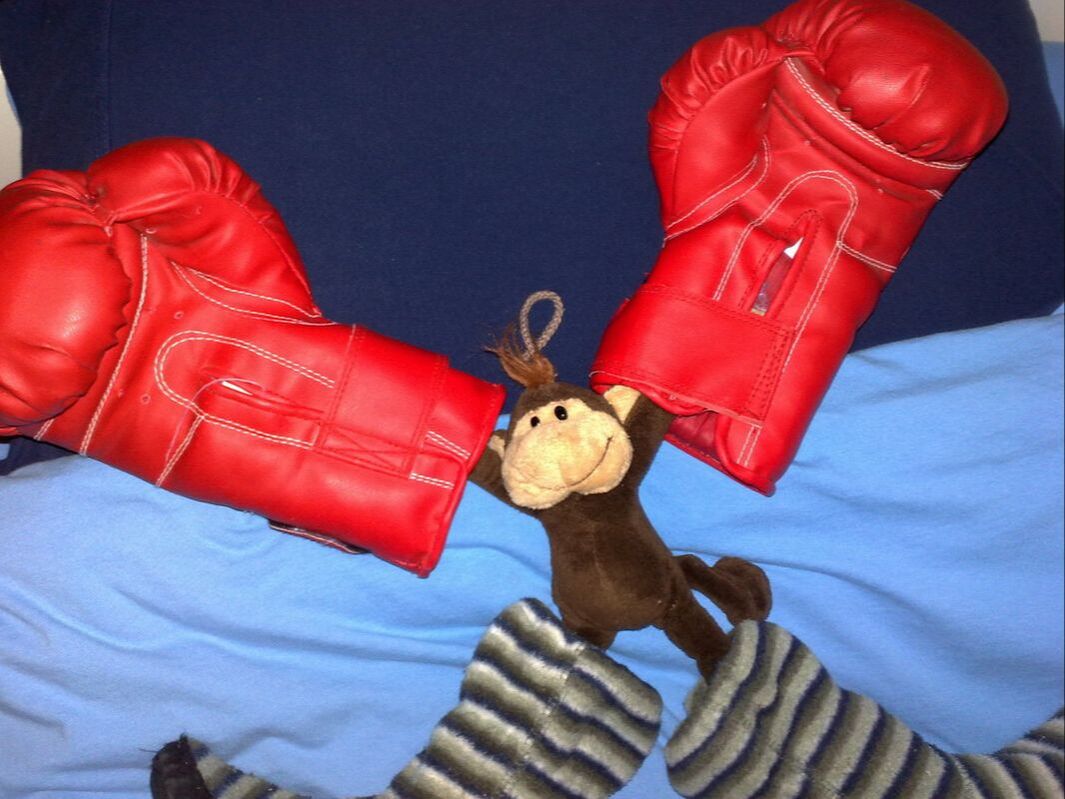
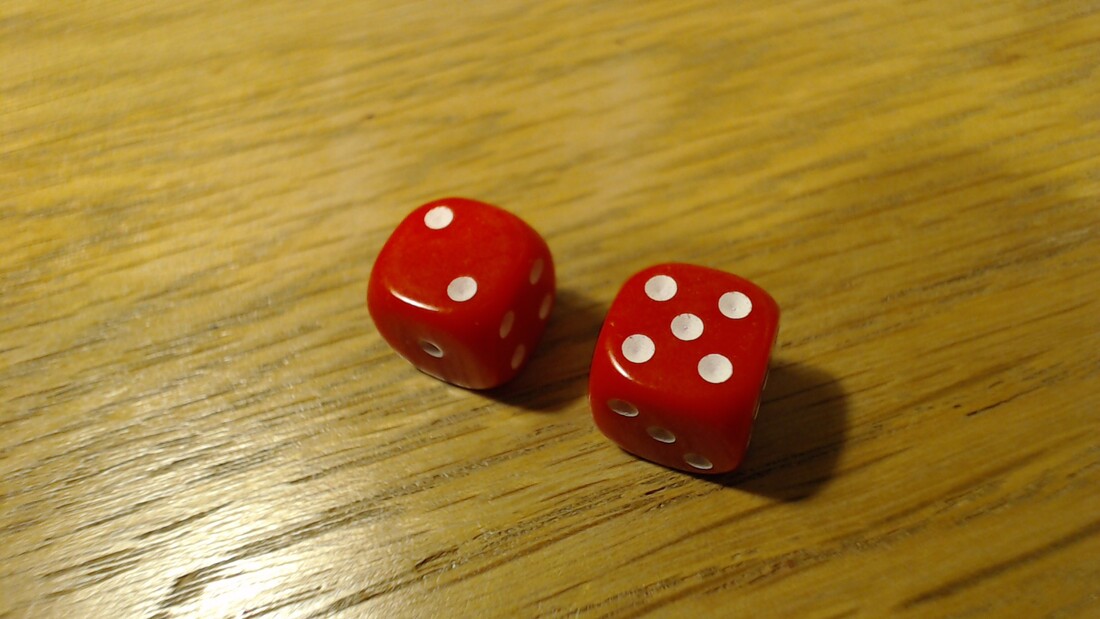
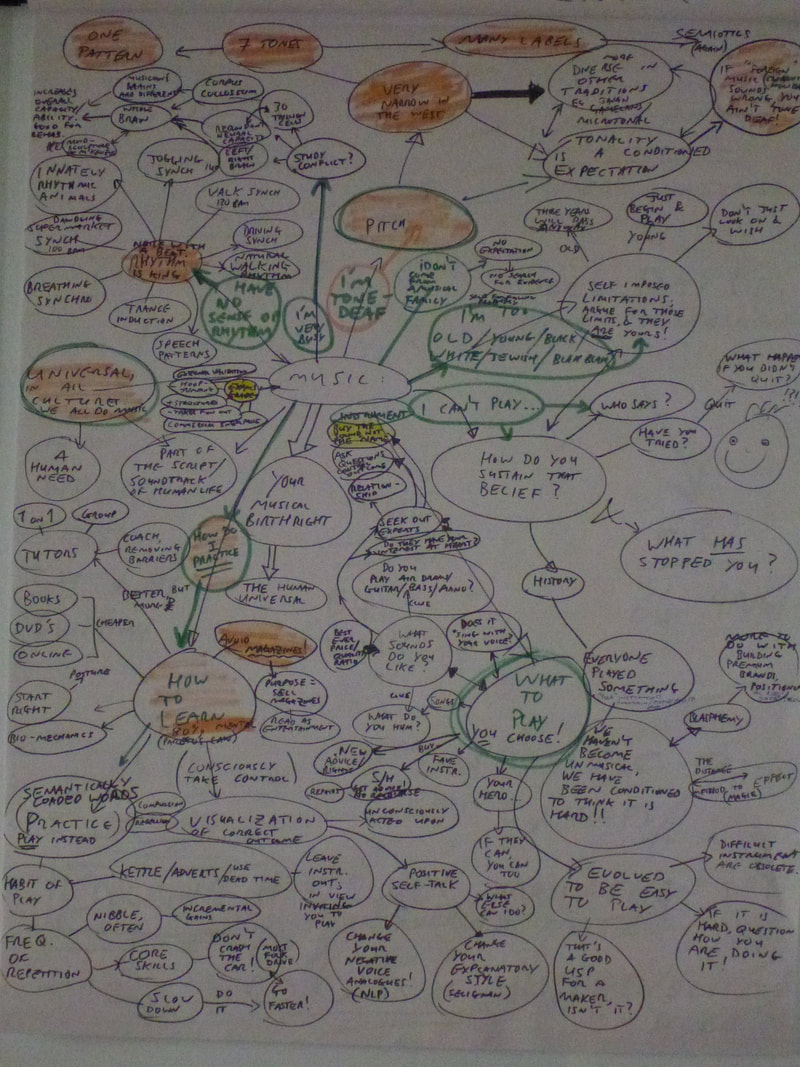






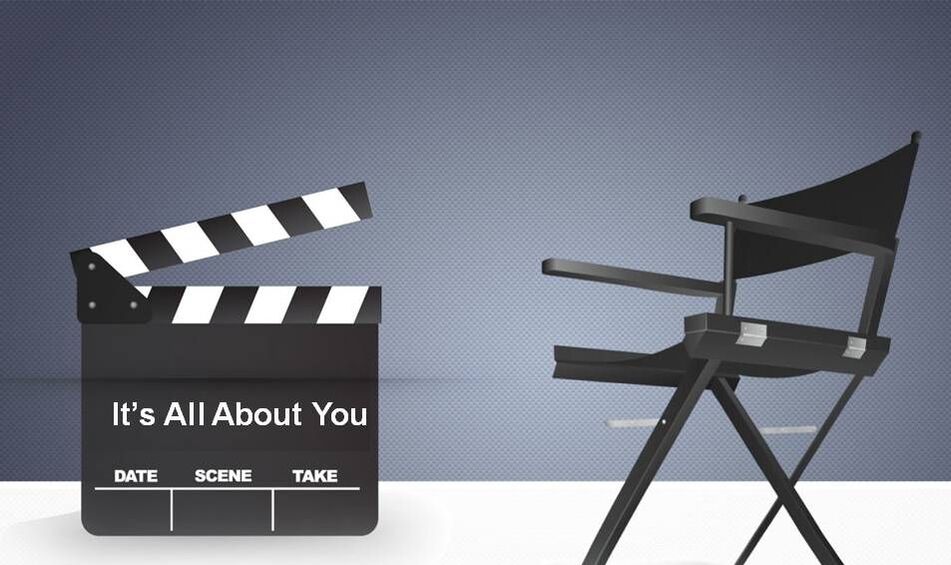
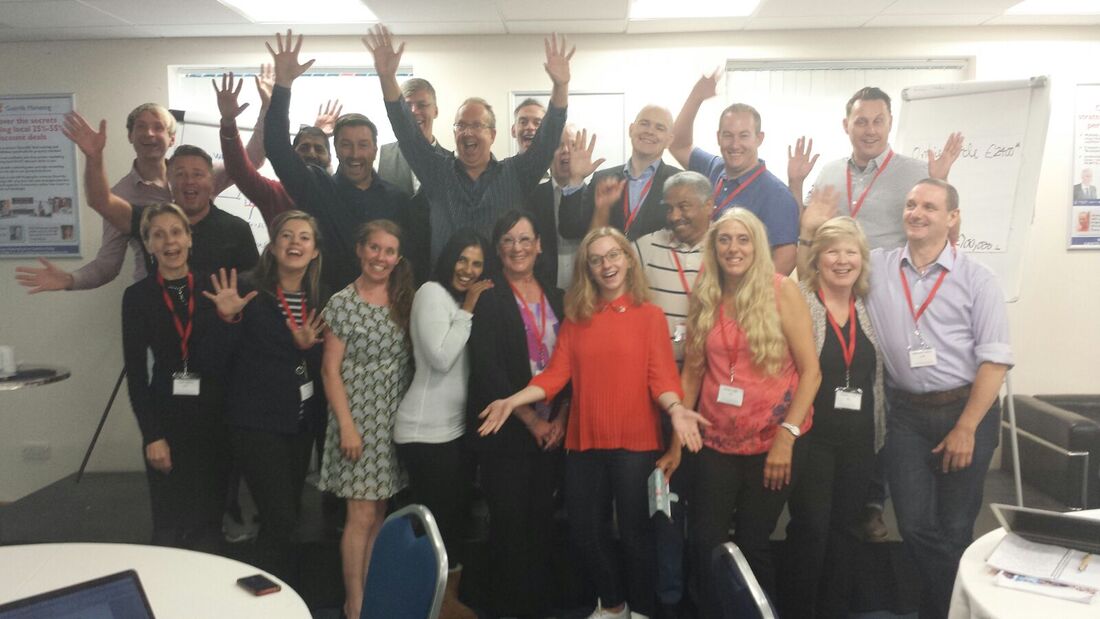
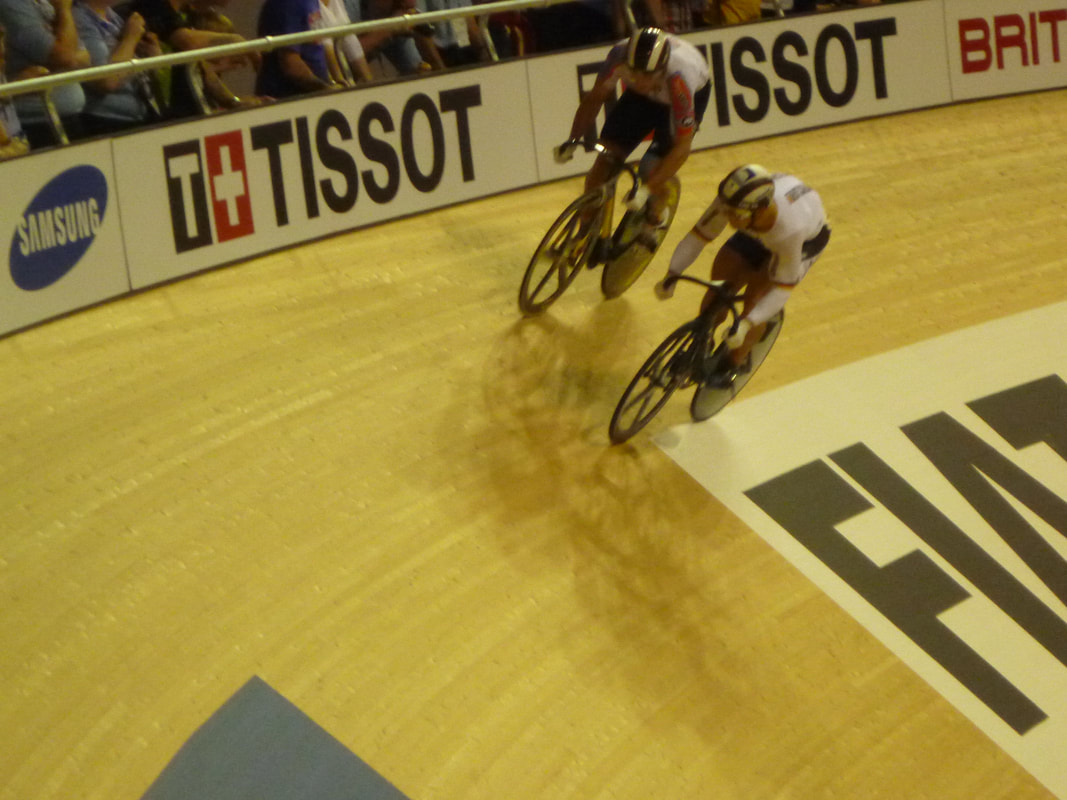
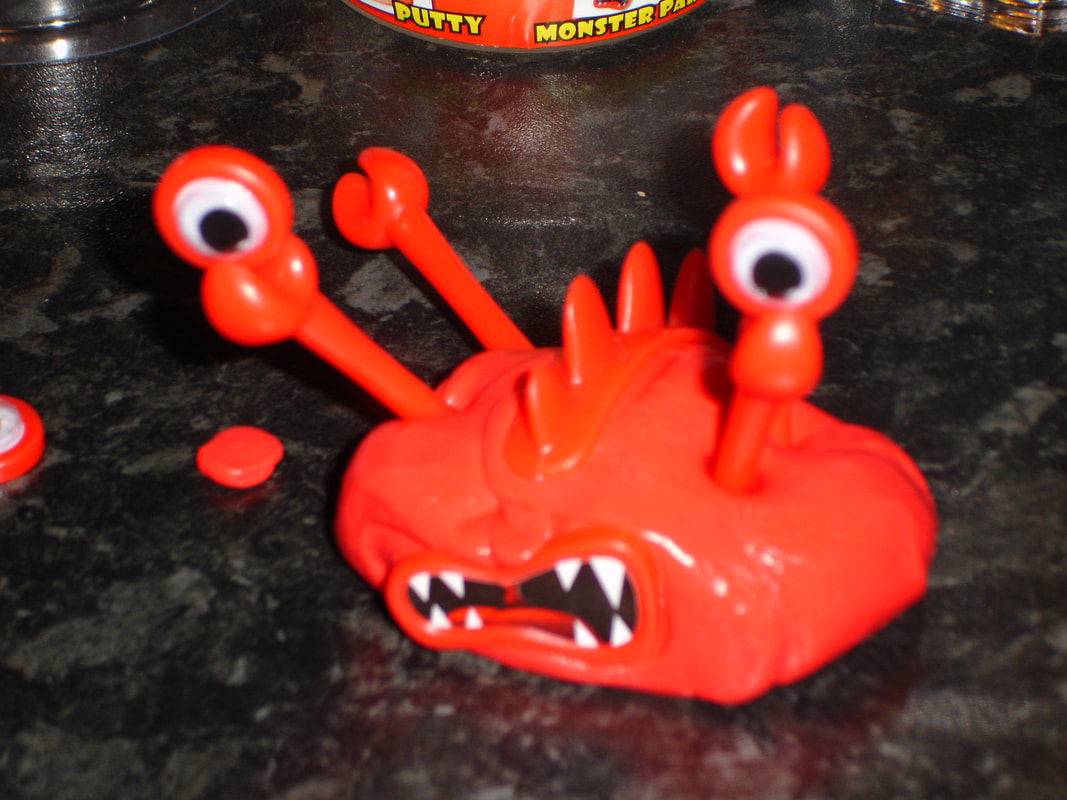


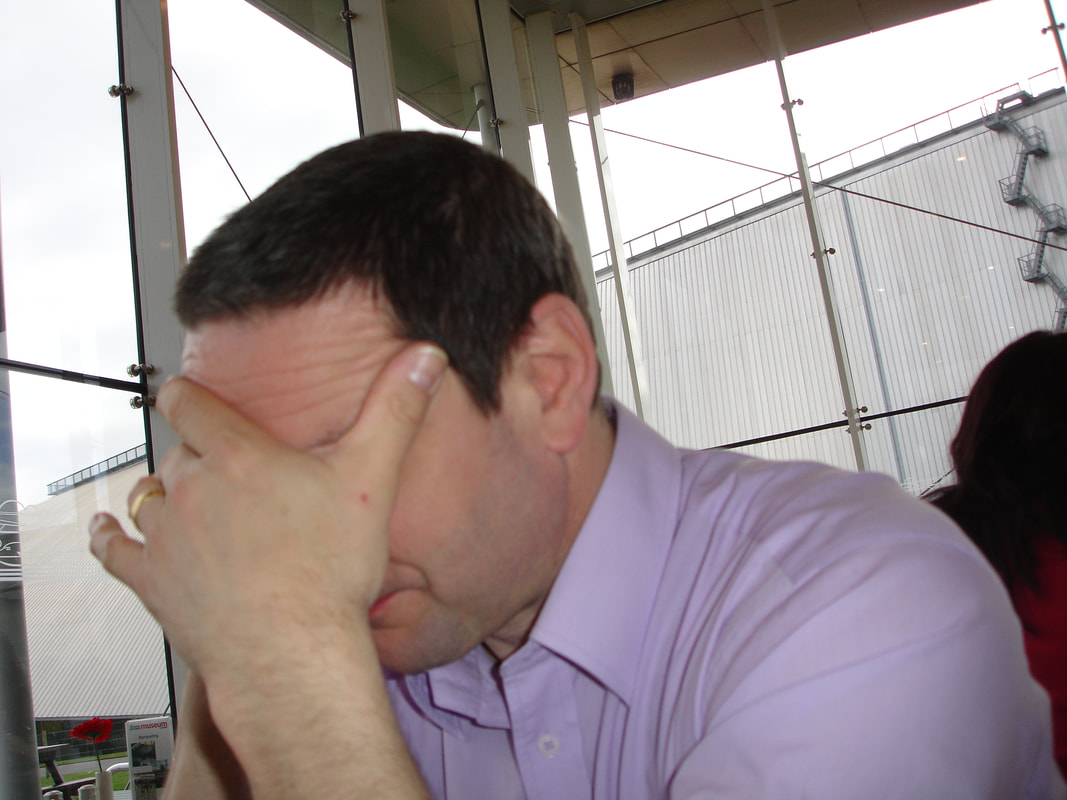
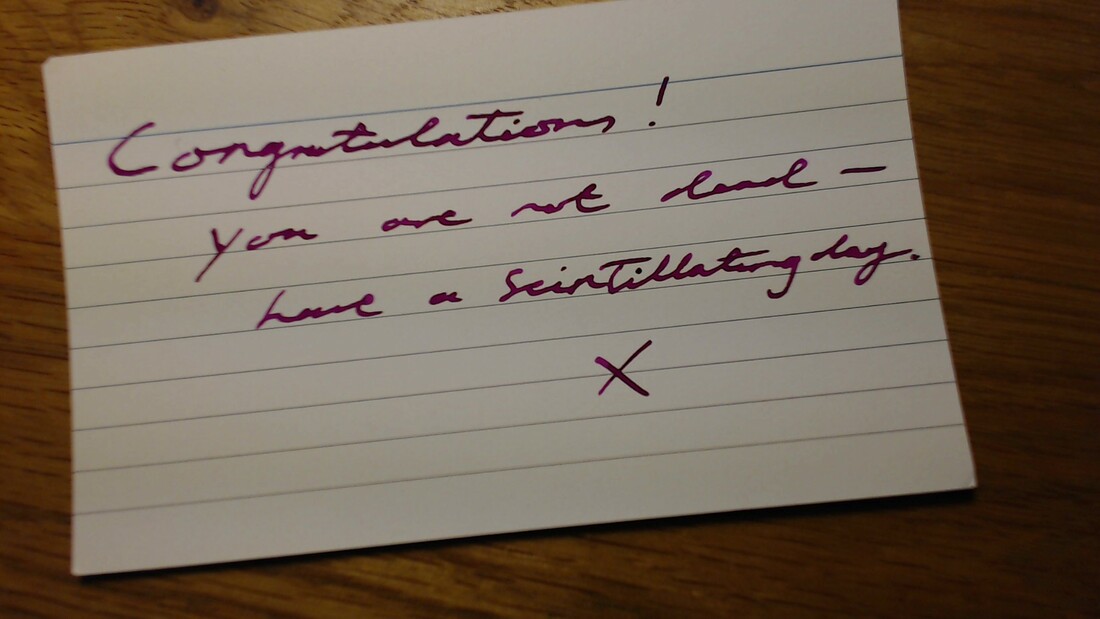





 RSS Feed
RSS Feed